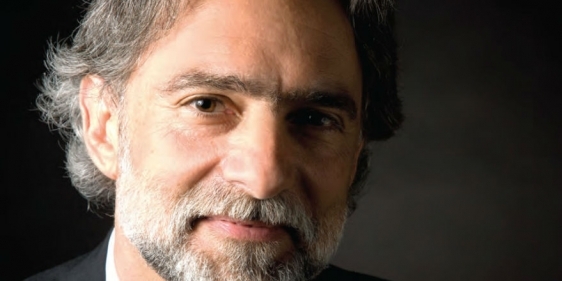Smart Talk

As a doctoral candidate at Oxford University, Stefanatos moved into the former office of Hans Krebs, a Nobel prize-winning biochemist, who corresponded with Einstein. There, Stefanatos found boxes of Krebs´s letters to Einstein, which piqued his interest in the famous physicist. He read Einstein´s biography and learned that the physicist did not begin talking until he was 3 years old.
HOW ARE LANGUAGE SKILLS AND INTELLIGENCE LINKED?
We use language to evaluate someone´s level of education and intelligence. In reality, language is just a part of intelligence. It relies on the function of very specific areas of the brain, which in some cases, might not be wired quite right. Other areas of the brain still function at very high levels.
WERE THERE PARTS OF EINSTEIN´S BRAIN THAT WERE PARTICULARLY HIGH FUNCTIONING?
Yes, it has been discovered that Einstein´s brain contained many more glial cells in certain areas of the brain than the average person. Glial cells provide neurons with the energy they need to do their work, and unlike neurons, the cells can multiply into adulthood.
HOW DID EINSTEIN´S DELAYED DEVELOPMENT AFFECT HIM LATER IN LIFE?
Einstein himself attributed his discovery of the theory of relativity to his delayed language development. He said that a normal adult doesn´t stop to think about the problems of time and space; they do that when they´re younger. But because his intellectual development was delayed, he didn´t start thinking about that until he´d already grown up.
HOW DOES KNOWING EINSTEIN´S HISTORY HELP GUIDE YOUR RESEARCH AND YOUR TREATMENT OF PATIENTS?
It can be tremendously frustrating having difficulties communicating, and a child doesn´t know that these things will get better over time. So the story of Einstein provides children with language difficulties some significant hope for the future—the best–case scenario for someone who has early language delays. They can be overcome, and the child can go on to do great things.
WHAT RESEARCH ARE YOU WORKING ON NOW?
We´ve just discovered what is essentially a new brainwave related to the processing of auditory information. In some of the children we´ve studied, that wave has turned out to be very small. There isn´t another procedure that analyzes the process in the brain, so I think it has great clinical implications.